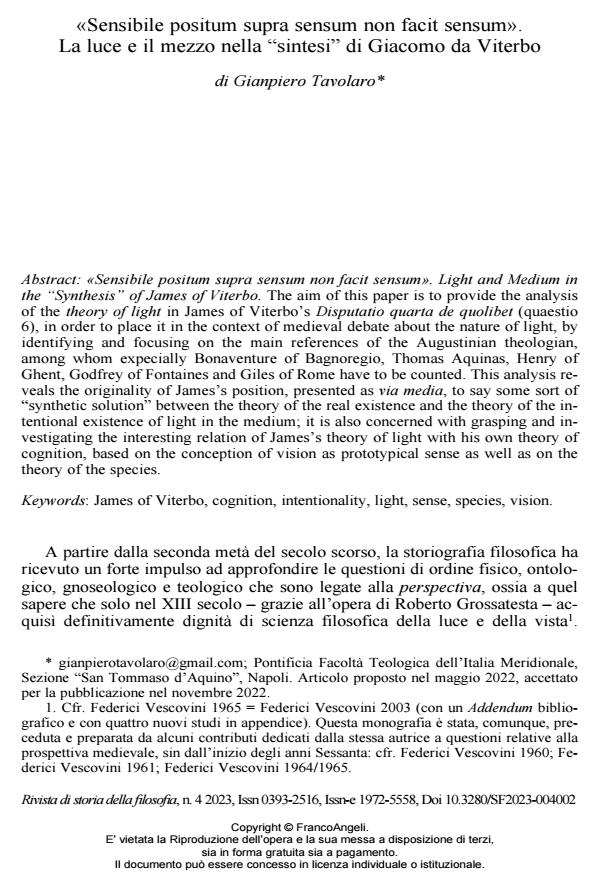«Sensibile positum supra sensum non facit sensum». La luce e il mezzo nella "sintesi" di Giacomo da Viterbo
Titolo Rivista RIVISTA DI STORIA DELLA FILOSOFIA
Autori/Curatori Gianpiero Tavolaro
Anno di pubblicazione 2024 Fascicolo 2023/4
Lingua Italiano Numero pagine 34 P. 526-559 Dimensione file 246 KB
DOI 10.3280/SF2023-004002
Il DOI è il codice a barre della proprietà intellettuale: per saperne di più
clicca qui
Qui sotto puoi vedere in anteprima la prima pagina di questo articolo.
Se questo articolo ti interessa, lo puoi acquistare (e scaricare in formato pdf) seguendo le facili indicazioni per acquistare il download credit. Acquista Download Credits per scaricare questo Articolo in formato PDF

FrancoAngeli è membro della Publishers International Linking Association, Inc (PILA)associazione indipendente e non profit per facilitare (attraverso i servizi tecnologici implementati da CrossRef.org) l’accesso degli studiosi ai contenuti digitali nelle pubblicazioni professionali e scientifiche
The aim of this paper is to provide the analysis of the theory of light in James of Viterbo’s Disputatio quarta de quolibet (quaestio 6), in order to place it in the context of medieval debate about the nature of light, by identifying and focusing on the main references of the Augustinian theologian, among whom expecially Bonaventure of Bagnoregio, Thomas Aquinas, Henry of Ghent, Godfrey of Fontaines and Giles of Rome have to be counted. This analysis re- veals the originality of James’s position, presented as via media, to say some sort of “synthetic solution” between the theory of the real existence and the theory of the in- tentional existence of light in the medium;; it is also concerned with grasping and in- vestigating the interesting relation of James’s theory of light with his own theory of cognition, based on the conception of vision as prototypical sense as well as on the theory of the species.
Parole chiave:James of Viterbo, cognition, intentionality, light, sense, species, vision.
Gianpiero Tavolaro, «Sensibile positum supra sensum non facit sensum». La luce e il mezzo nella "sintesi" di Giacomo da Viterbo in "RIVISTA DI STORIA DELLA FILOSOFIA" 4/2023, pp 526-559, DOI: 10.3280/SF2023-004002